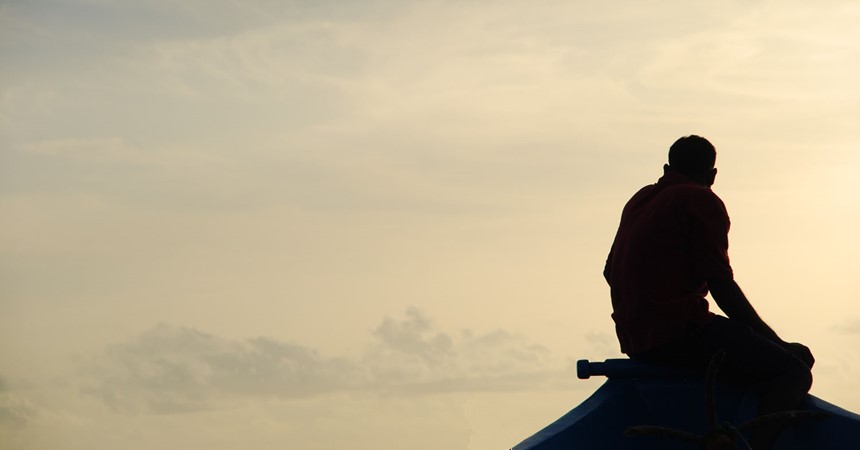It was Howard, of course, who perfected the art of dog-whistle politics when he said in 2001, “We will decide who comes to this country and the circumstances in which they come.”
Clearly those who try to come by boat are the ones Australians have decided will not be coming here. Whom then should we choose? The government’s oft-repeated mantra is that Australia has one of the most generous resettlement programs in the world, and that this is how we will assist the world’s refugees. The reality of that “generosity” is that in 2015, for example, Australia recognised or resettled 11,776 refugees: that was just 0.48 per cent of the global total.
Whom should we choose to live with us in Australia? Which refugee deserves our help? These questions have been asked in another way, in the gospel of Luke: “Who is my neighbour?”
The question results in Jesus telling the parable of the Good Samaritan. The context of the question however is crucial: the scribe who asks Jesus the question has first asked him, “Teacher, what must I do to inherit eternal life?” The scribe is struggling with an ethical question: how should I act if I am to be part of God’s kingdom? Prompted by Jesus, he brings together two commands in the law: love God and love your neighbour. It is then that he poses the question, “Who is my neighbour?”
Jesus turns the question on its head, and by the end of the parable the question has essentially become, “How are you a neighbour to the one in need?” Who is a neighbour? “The one who showed him mercy.”
When Turnbull, Howard, and those who defend the bipartisan consensus in Australia about stopping the boats say that we decide who comes here, they engage in a kind of paring down to the barest ethical minimum. The argument is that our resources are limited, our social cohesion fragile, our security threatened, our borders porous. We manage these risks by limiting our generosity and by displaying our capacity for force and brutality. The Samaritan, however, shows mercy and compassion precisely because he gives not from his superfluity, or from a position of strength and security. The parable tells us that the Samaritan not only pays the innkeeper for the man’s immediate care; he tells him to spend whatever is needed and he will return to make good the outstanding sum. That care and generosity is open-ended − and potentially financially ruinous.
In his 2013 homily when he celebrated Mass on Lampedusa for the refugees who had drowned off that island, Pope Francis spoke of how the world “has forgotten the experience of weeping, of ‘suffering with’.” The Samaritan is held up by Jesus as a model for how to be a neighbour, how to act in accordance with the ethics of God’s kingdom, because he shows compassion, ie he suffers with the man on the road. He puts himself at risk, and he does this in a way that is unstinting and open-ended.
In that same homily Pope Francis reminded us that there are “two questions that God puts at the beginning of the story of humanity, and that he also addresses to the men and women of our time: ‘Adam, where are you?’ ‘Cain, where is your brother?’ The biblical witness is not about humanity questioning God, but God questioning us. Former archbishop of Canterbury, Rowan Williams, had this to say in a sermon on Christmas Day in 2011:
“Very near the heart of Christian faith and practice is this encounter with God's questions, 'Who are you, where are you?' Are you on the side of the life that lives in Jesus, the life of grace and truth, of unstinting generosity and unsparing honesty, the only life that gives life to others? Or are you on your own side, on the side of disconnection, rivalry, the hoarding of gifts, the obsession with control?”
The ethics of the kingdom call us into a radical solidarity with one another, where walls are not raised but torn down; where boats are not turned away but welcomed; where suffering with others is not to be avoided but embraced. We can approve of policies that turn away boats, that are driven by avoiding the costs and risks to us, and that give us a sense of control. We can say that these policies are politically expedient and that they are supported by a majority of the electorate. What we cannot do is say that these policies are Christian.
The parable of the Good Samaritan ultimately reveals that the neighbour is the other, the stranger, or the despised person, who brings you life when you are close to death. Is that neighbour not Jesus himself, the rejected one who is in the end revealed as Lord and God? Geoffrey Hill, in his poem “Lachrimae Amantis”, says to Jesus:
What is there in my heart that you should sue
so fiercely for its love? What kind of care
brings you as though a stranger to my door
through the long night and in the icy dew
seeking the heart that will not harbour you,
that keeps itself religiously secure?
Is that not the Christian calling, to let the Son of God be revealed in us when we, though strangers, seek out those who need life and love; to be signs of a radical connectedness with one another; to be risk-taking makers of solidarity?
Aloysious Mowe sj is Director, Jesuit Refugee Service Australia. To read earlier articles in this series, please visit mnnews.























































































